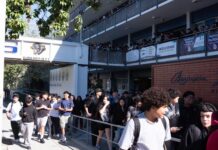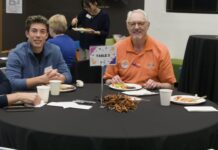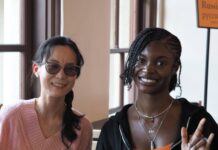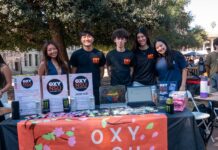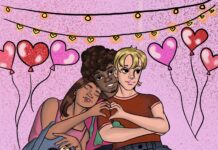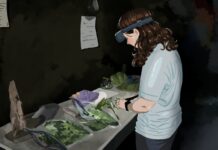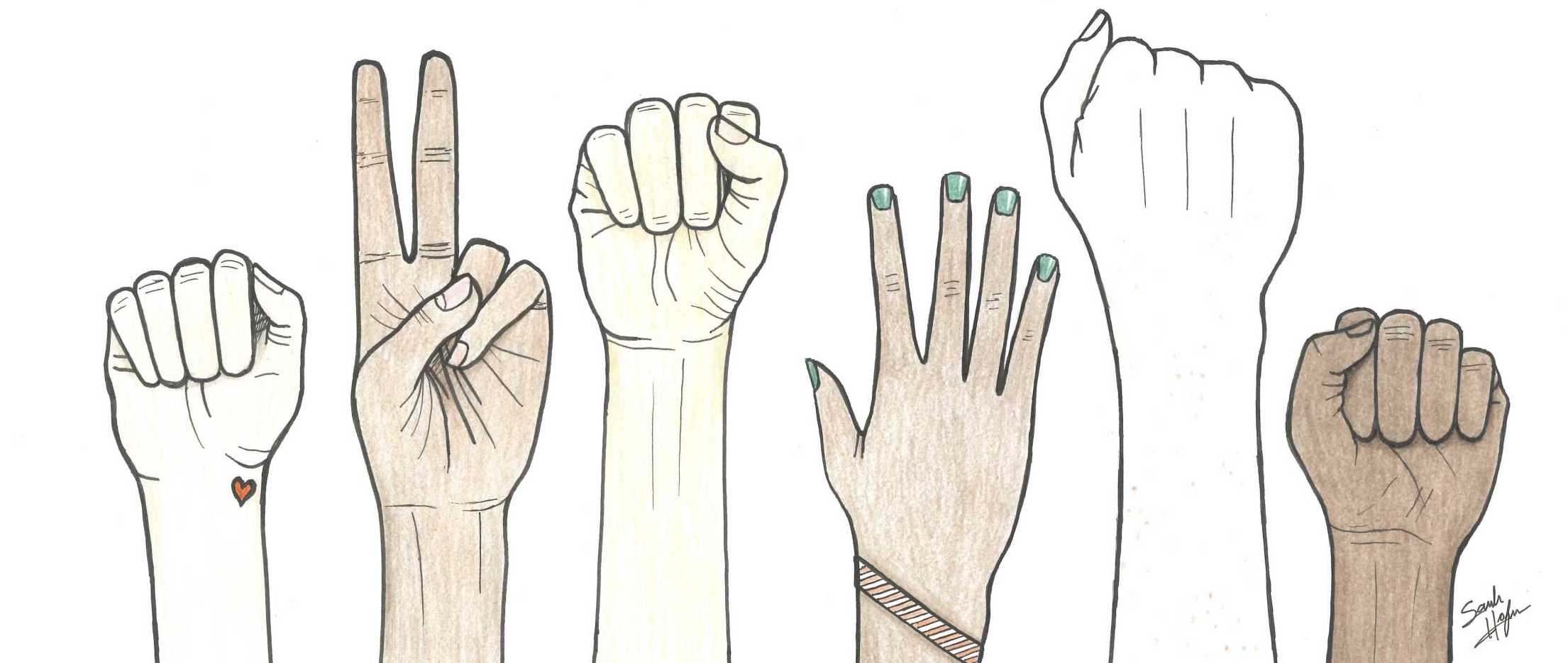World leaders gathered Dec. 10, 1948, at the U.N. General Assembly in New York to adopt the Universal Declaration of Human Rights (UDHR). Leaders from a variety of legal, political and cultural backgrounds collaborated on this document to establish a standard of basic, undeniable rights for all people. In 1950, the General Assembly passed resolution 423 (V), which invited all states, organizations and people to observe Dec. 10 each year as Human Rights Day.
All humans, regardless of identity, are entitled to the basic freedoms outlined in the UDHR. The purpose of Human Rights Day is to advocate for human rights and bring awareness to violations of the rights of vulnerable populations. This year, the U.N. calls for all people to stand up in defense of someone’s rights.
Occidental College students have a responsibility to be aware of injustices committed domestically and abroad. With the resources available to students, they are also set up to educate themselves on human rights issues and social concerns.
When the UDHR was signed, much of the world was rebuilding itself after World Wars I and II, periods in which millions of people were denied the basic rights to life, protection from torture and slavery and freedom of thought. These abuses sparked a conversation about inalienable human rights and led to the creation of a set of basic rights to which all humans should have access. After months of deliberation, 30 rights were agreed upon and have been permanently established in the UDHR since.
It is the prerogative of independent nations to sign on to the UDHR as an expression of their commitment to protecting human rights. Nations have also created their own collection of protected rights, such as the United States Bill of Rights, which establishes constitutional protection for individual liberties. In the years since it was written, additional amendments have been made to expand and clarify the specifics of the rights that the United States government has said it will protect on behalf of its citizens, such as the Supreme Court’s recent ruling making same-sex marriage a federally protected right.
Saturday’s Human Rights Day will operate around the world as a day to bring awareness to the wide variety of current human rights violations. Governments, non-governmental organizations and grass-roots activists are still fighting for the protection of universal human rights, from civil rights violations such as discrimination based on race in the United States to children being taken from their homes and forced into sex slavery in Southeast Asia. Citing the increasing uncertainty of personal security, the U.N. encourages people around the world to make human rights a personal issue and directly defend someone’s freedom.
“It’s time for each of us to step up for human rights. There is no action that is too small: wherever you are, you can make a difference. Together, let’s take a stand for more humanity,” U.N. High Commissioner for Human Rights, Zeid Ra’ad Al Hussein said.
Occidental College professor of Diplomacy and World Affairs, Anthony Chase, provided insight into the continuous evolution of human rights and the necessity of activism in today’s political climate.
“I can’t say where human rights will go, though they are increasingly being effectively attacked by state elites around the world, including in the U.S.,” Chase said. “That is to be expected. My argument is that, if human rights are to maintain relevance, they cannot be a matter of static treaty documents but, rather, be dynamically changed by the voices of the marginalized — so, yes, they must go well beyond the UDHR.”
“It’s time for each of us to step up for human rights. There is no action that is too small: wherever you are, you can make a difference. Together, let’s take a stand for more humanity.” —U.N. High Commissioner for Human Rights, Zeid Ra’ad Al Hussein
Los Angeles county has its own share of human rights violations, including sex slavery and labor trafficking. Although it has been prevalent for many years, it was not until 1998 when a case of labor trafficking in East Los Angeles gained major media attention that this issue became relevant to the public. By witnessing these crimes locally, Angelenos were forced to acknowledge that human rights violations were an issue not only in the developing world but also in the United States.
“In 1998, there was an incident in El Monte where there were 72 Thai workers, garment workers that were being held against their will to make clothing,” Stephanie Molen, director of partnerships at the Coalition for the Abolition of Slavery and Trafficking (CAST), said.
This discovery started an outpouring of support and advocacy from the Pacific Islander community in LA. It quickly became evident that these workers and other victims of human trafficking and slavery were without many resources needed for their well-being and survival. CAST was created to fulfill the needs of survivors and promote advocacy for human rights in L.A.
Molen said that the staff has grown to 32 members and they now host a 24-hour emergency hotline that people can call if they have a potential human trafficking violation in their area to report. Due to their work with human trafficking survivors, CAST works closely with Los Angeles Police and Sheriff’s departments on locating suspected victims and providing survivors with access to resources. In 2014 the Los Angeles County Sheriff’s Department applied for a grant to expand their resources and as a result, the LA Human Trafficking Bureau and Regional Human Trafficking Task Force (RHTTF) were established.
The bureau, in partnership with non-governmental organizations like CAST, takes a three-part approach in its effort to end all forms of human trafficking in Los Angeles. The first is to safely remove the victim from their situation and provide them with choices for how they wish to progress. The second works with legal partners to investigate the perpetrator and to convict all involved parties. The third step is to end the trafficking of persons by ending the demand and educating the public on the importance of reporting suspected incidents of trafficking.
“Within the task force [RHTTF] we bring these resources that we have at CAST to try to help develop a victim-centered approach with the law enforcement officers and really assess how we can help create a new and better way of addressing human trafficking and better identification of both labor and sex trafficking victims in Los Angeles,” Molen said.
“Although the right to education is one that is so important, it usually gets overlooked in the midst of food insecurity and regional conflict.” —Juliah Lee (sophomore)
At Occidental, student leaders are taking the initiative to stand up for the rights of others through clubs, class discussions and social activities. For students who are looking to become more involved in human rights activism on campus, Josh Cohen (junior), a program assistant at the McKinnon Center for Global Affairs, suggests that students first find a specific area in which they are passionate.
“There are many iterations of human rights from very broad to very specific and defining it well is a first step in getting more involved,” Cohen said.
The McKinnon Center, which sponsors a speakers series on campus each semester with faculty, often hosts events related to human rights that provide an opportunity for Occidental students to engage in the field through education.
“[Human rights] is something that is embedded into almost every speech we have,” Will Butenschoen (junior), a research assistant at the McKinnon Center, said.
This semester, the McKinnon Center hosted Dennis Altman, who gave a lecture titled “Governments, International Organizations, the U.N. and Queer Rights“ that explored the inclusion of queer rights into future U.N. human rights advocacy and policy.
Clubs on campus are another source of activism and political advocacy. The No Lost Generation Club (NLG), founded by Juliah Lee (sophomore), is a club specifically designed to raise awareness about the refugee crisis and promote educational opportunities for refugees. Lee was inspired to start a chapter of this organization at Occidental after noticing that displaced youth and refugees often lack access to education, a fundamental human right.
“Although the right to education is one that is so important, it usually gets overlooked in the midst of food insecurity and regional conflict. By promoting educational rights, not only does NLG speak to the greater need to focus on education but it helps shed that romanticization of, ‘Oh, let’s feed the starving child,’” Lee said.
Although the club only became active this semester and is still in its beginning stages, Lee is working with the Office of Religious and Spiritual Life to make Occidental College a refuge through Every Campus a Refuge (ECAR). If successful, ECAR would allow Occidental to host Syrian refugee families for 90 days and provide them with the resources they need to ensure they have stable transitions into life in the U.S.
“Human rights to me means opportunity, ” Lee said. “Outcome isn’t always guaranteed, sadly, but I think taking steps to first establish those kinds of opportunities — the right to life, the right to education, the right to food — would inevitably lead to further developments of guaranteed positive outcome.”
The Pasadena Chapter of the United Nations Association will celebrate Human Rights Day Sunday, Dec. 11. At the event, Sama Wareh, a Syrian-American artist and humanitarian will speak about the right to education locally and internationally, giving special attention to the lack of access to education that millions of children living in refugee camps around the world face.
This event is one opportunity to support Human Rights Day’s theme of the year, to show gratitude for your human rights by doing something to protect someone else’s. The event will take place from 2:00 p.m. to 4:00 p.m. Sunday at Creveling Lounge of Pasadena City College, located at 1570 E Colorado Blvd.
![]()







